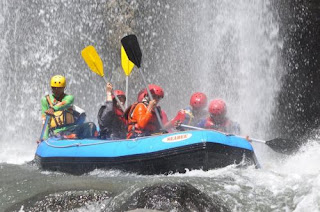Ketika melihat seorang teman telah memotong rambutnya, pertanyaan mana yang lebih tepat kita utarakan? "When did you cut your hair?" atau "When did you have your hair cut?". Begitu juga jawabannya, mana yang lebih tepat, "I cut my hair yesterday." atau "I had it cut yesterday."?
Kedua bentuk pertanyaan dan jawaban tersebut sebenarnya memiliki perbedaan makna yang sangat mendasar "When did you cut your hair?" ~ "I cut my hair yesterday." sebenarnya bermakna memotong rambut kita sendiri tanpa bantuan orang lain. Jika kita menyuruh orang lain untuk melakukan sesuatu (misal: memotong rambut kita), akan lebih tepat jika kita mengatakan "When did you have your hair cut?" ~ I had it cut yesterday." Inilah yang disebut causative verb.
Penggunaan Causative verbs dalam kalimat bahasa Inggris memiliki makna bahwa seseorang menyuruh atau membuat orang lain melakukan sesuatu. Causative verbs juga bisa mengindikasikan bahwa seseorang meminta suatu hal terjadi. Causative verb bisa berbentuk kata kerja (tense) apapun.
Causative verb selalu diikuti kata kerja (verb) berbentuk simple (Verb 1), infinitive (to + Verb 1), atau past participle (Verb 3):
Summary:
Do you know the difference?
Kedua bentuk pertanyaan dan jawaban tersebut sebenarnya memiliki perbedaan makna yang sangat mendasar "When did you cut your hair?" ~ "I cut my hair yesterday." sebenarnya bermakna memotong rambut kita sendiri tanpa bantuan orang lain. Jika kita menyuruh orang lain untuk melakukan sesuatu (misal: memotong rambut kita), akan lebih tepat jika kita mengatakan "When did you have your hair cut?" ~ I had it cut yesterday." Inilah yang disebut causative verb.
Penggunaan Causative verbs dalam kalimat bahasa Inggris memiliki makna bahwa seseorang menyuruh atau membuat orang lain melakukan sesuatu. Causative verbs juga bisa mengindikasikan bahwa seseorang meminta suatu hal terjadi. Causative verb bisa berbentuk kata kerja (tense) apapun.
Causative verb selalu diikuti kata kerja (verb) berbentuk simple (Verb 1), infinitive (to + Verb 1), atau past participle (Verb 3):
- Bentuk simple (The simple form)
Causative verbs followed by the simple verb Noun Causative verb Noun (person) Verb (simple) Noun The teacher makes
has
letshis students speak English. - Bentuk Infinitive (The infinitive form)
Causative verbs followed by the infinitive Noun Causative verb Noun (person) Verb (simple) Noun The teacher gets
wants
orders
permits
allowshis students to speak English. - Bentuk Past Participle (The past participle form).
Causative verbs followed by the past participle Noun Causative verb Noun (person) Verb (simple) Noun The teacher had
gotthe essay written in English.
Summary:
- Untuk menunjukkan bahwa seseorang menyuruh orang lain melakukan sesuatu, causative verb bisa diikuti bentuk simple (verb 1) atau infinitive (to Verb 1). Bentuk ini juga disebut Active Causative (nomer 1 & 2).
- Untuk menunjukkan bahwa seseorang menyuruh sesuatu dikerjakan oleh seseorang, causative verb harus diikuti bentuk past participle (verb 3). Bentuk ini juga disebut Passive Causative (nomer 3).
Do you know the difference?
- a. He repaired the broken window last Sunday.
b. He had the broken window repaired last Sunday. - a. She makes her own dresses.
b. She always gets her dresses made. - a. She is typing the letter now.
b. She is having the letter typed. - a. They are going to repaint the house.
b. They are going to have the house repainted. - a. I translated the story into English.
b. I had the story translated into English.












